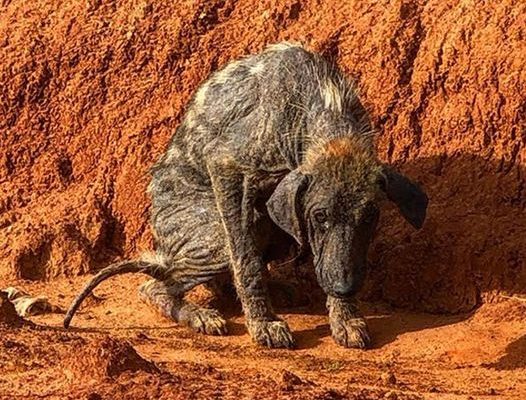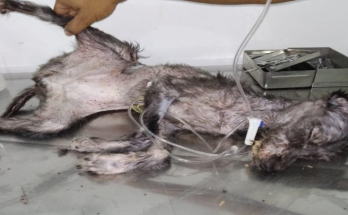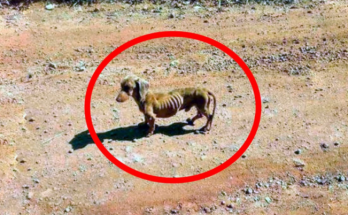
Children Stoned Him A Lot, So TerrifiedWe Took Over 70 Days to Win Back His Trust
The Bejoudi tale is a brilliant illustration of the transformational power of love and patience in a society when compassion often seems rare. Seen shivering and cowering on the side of the road, Bejoudi was a sight that drew in onlookers. The poor dog was already traumatized, but worried neighbors said that he was now a regular target of stones thrown by kids.
It became clear from closer examination that Bejoudi was fighting the effects of severe mange or leishmaniasis in addition to the wounds from physical abuse. His soft body was covered with open sores and his once-glossy coat was replaced with scarred flesh. Though dread and suffering were ingrained in every step he took, there was a glimmer of hope in his eyes.

Bejoudi’s rescuers started the protracted process of winning his trust with kind words and unflinching patience. They gave him food and comfort and talked to him in calming tones day by day until he hesitantly answered their acts of goodwill. At that point, they gave him the name “Bejoudi,” which represented the resiliency that was latent within of him.
Bejoudi was still a long way from home, though. Starting a leishmaniasis treatment program, he had no idea what was ahead. His odds of life were clouded by early testing that showed a spread of illness or maybe a deterioration of his health. His caregivers, however, were adamant about giving him the fighting chance he so well earned and would not waver.
Bejoudi underwent an incredible metamorphosis in front of their eyes over the period of 130 days. His formerly fragile physique gained strength with every week, and the scars on his skin started to mend. But Bejoudi’s spirit bloomed in the company of love and care, not simply his physical health.

Bejoudi, who had been the shy creature crouching in terror, now welcomed life with a fresh enthusiasm and enjoyed the small pleasures of play and company. His more assured and contented relationships with other canines were evidence of the therapeutic potential of acceptance and affection.
And then fate interfered once more, just when Bejoudi’s trip appeared to be at its height. His tenacity and energy moved a kind person, who offered him a permanent family where he would never again experience the agony of abuse or neglect.
Bejoudi has obviously completed a full circle in his trip as he wags his tail excitedly at his new existence. From a terrified stray, stoned and injured by the side of the road, to a valued friend treasured for the light he brought into other people’s lives, Bejoudi’s narrative is a potent reminder of the ability of love to overcome hardship.




